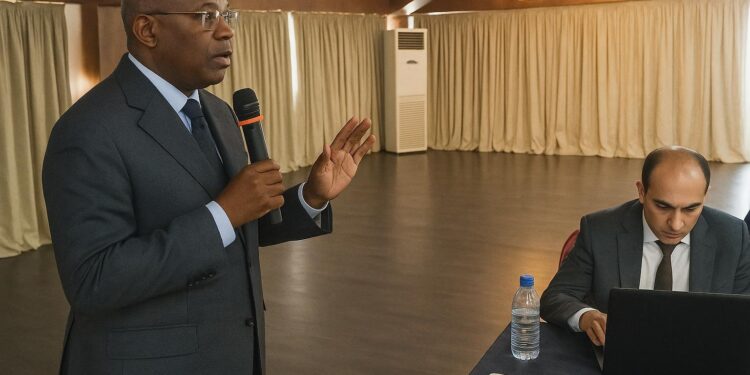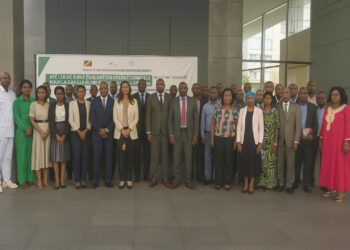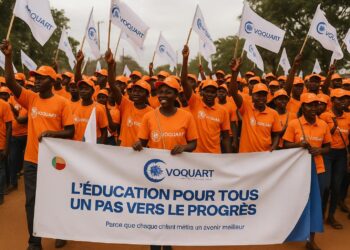A Tight Schedule for the 2023 Report
Brazzaville’s conference hall fell unusually silent as dozens of senior civil servants opened laptops to discover the redesigned ITIE declaration forms. With the deadline for the 2023 national report approaching, facilitators reminded participants that every late figure could delay a flagship of Congo-Brazzaville’s transparency agenda.
The national committee scheduled the workshop for 2 September 2025, only four days after the initial cut-off for data submission. Organisers insisted the timing reflected logistical constraints rather than complacency. “We preferred a brief postponement to ensure accurate entries,” one committee adviser noted on the sidelines.
Why the Templates Changed
The Independent Administrators, Karim Lourimi and Fathi Mabrouk of consulting firm Enertean, explained that the new templates align Congo’s reporting architecture with EITI’s 2019 Standard. They feature machine-readable cells, expanded project-level tax lines and mandatory gender-disaggregated employment numbers, elements now required by the international board (EITI Secretariat, 2023 guidance).
Officials were told that automated plausibility checks will flag inconsistencies between company declarations and Treasury receipts. The committee expects the upgrade to reduce reconciliation gaps below two percent, a threshold many peer countries still struggle to meet.
Capacity Building as Reform Catalyst
Florent Michel Okoko, the permanent secretary heading the ITIE committee, framed the session as more than a technical drill. “These forms underpin laws already shaping budget governance,” he said, citing the 2023 Transparency Act and the forthcoming organic finance law. Both statutes reference ITIE datasets for audit purposes.
World Bank advisors from the PAGIR programme agreed. They argued that reliable fiscal data lowers sovereign-risk premiums by clarifying how hydrocarbon windfalls flow through public accounts. In their view, training mid-level managers ensures that reforms survive successive budget cycles and leadership changes (World Bank PAGIR brief, 2024).
Inside the New Digital Workflow
Participants navigated screens listing royalties, signature bonuses, production-sharing entitlements and quasi-fiscal expenditures. Each field links to embedded legal references, allowing clerks from customs or tax directorates to trace the legislative basis for every figure without exiting the file.
Enertean consultants demonstrated a secure upload portal hosted on government servers. Once a file is validated, a hash signature is generated, making tampering detectable. This mechanism, developed with Congo’s National Cyber-Security Agency, responds to past civil-society concerns about data loss during email transfers.
Data Quality Stakes for Extractive Revenues
Hydrocarbons account for roughly 60 percent of Congo-Brazzaville’s fiscal receipts, while timber and mining contribute an additional 10 percent, according to Ministry of Finance statistics for 2024. Even minor misstatements can skew macroeconomic planning, debt-sustainability analyses and climate-finance modelling.
Okoko reminded the audience that every disclosure is co-signed by the State and the reporting company. “An ITIE report carries the collective signature of government, business and civil society,” he said, stressing that discrepancies trigger dialogues rather than sanctions, reinforcing shared accountability.
Private-Sector Reaction
Executives from oil majors present as observers welcomed the clearer layout. One upstream finance manager said the new schedule for reporting payments in kind—crude cargoes lifted on behalf of the State—matches internal trading records, reducing reconciliation time. Mining operators echoed similar sentiments regarding royalty sub-categories.
However, a representative from a mid-sized forestry exporter noted the volume of ancillary disclosures now required, such as social payments and carbon-credit revenues. “We support transparency, but smaller firms need inexpensive accounting software,” he said, urging the committee to publish open-source templates.
Civil-Society Perspectives
Transparency advocates attending under the ITIE’s tripartite principle viewed the workshop as a step forward. They welcomed the portal’s public dashboard, scheduled for launch after data verification, which will visualise revenue streams by project, region and gender-segmented employment.
Still, some groups cautioned that data quality hinges on agencies upstream of the portal. “If field inspectors undercount production, the prettiest template will not save us,” commented a representative of the Congolese Observatory of Natural Resources, urging ongoing capacity support for provincial offices.
Balancing Deadlines and Accuracy
Eloi Camille Opou, ITIE focal point at the Congolese Debt Amortisation Fund, regretted the late timing. Initial guidance asked entities to submit data by 29 August 2025. Organisers answered that the reporting window would remain open for latecomers until mid-September, but flagged that extensions may postpone the report’s final approval.
International partners expressed understanding. A senior World Bank official privately said that Congo’s timeline remains within the EITI six-month tolerance between fiscal year-end and drafting onset, especially given concurrent work on debt-management reforms.
Implications for Investors
Rating agencies typically scrutinise EITI reports to gauge governance risk premiums. A cleaner 2023 dossier could bolster Congo’s planned Eurobond refinancing and attract green-bond investors seeking verifiable social and environmental metrics.
Financial consultancies note that digital templates also ease due-diligence for mergers and acquisitions in the oil block divestment wave expected through 2026. Transparent revenue flows help buyers model asset cash-flows with greater confidence, potentially lifting valuations.
Next Steps in the Reporting Cycle
The ITIE committee intends to consolidate the incoming data by November, publish the draft reconciliation in December and finalise the national report by early 2026. A public comment window will allow stakeholders to challenge figures prior to validation by the international board.
After publication, the committee will draft an action plan translating recommendations into budget or regulatory amendments. Previous cycles inspired the 2021 Hydrocarbons Code, the 2022 Mining Regulation overhaul and recent fiscal incentives for carbon-credit projects.
A Broader Governance Narrative
Observers recall that Congo-Brazzaville became an EITI member in 2007 and achieved compliance in 2013. The country subsequently upgraded its public-finance framework, created a sovereign wealth fund and digitised customs. Each step has incrementally improved its ranking in continental governance indices.
The new templates therefore fit into a continuum of reforms rather than a one-off exercise. Officials assert that successful implementation could buttress ongoing IMF policy support discussions and confirm Brazzaville’s commitment to prudent debt management amid volatile oil prices.
Looking Forward
As laptops powered down, attendees collected flash drives containing user manuals and template walkthrough videos. Many left convinced that the learning curve, though steep, is surmountable. The consensus: reliable numbers are as strategic as barrels of oil or cubic metres of timber.
Whether the 2023 ITIE report meets its revised timeline will depend on inter-agency coordination and corporate responsiveness. Yet the training signalled a clear message: Congo-Brazzaville views transparency not as an external conditionality but as a cornerstone of its development agenda.












































